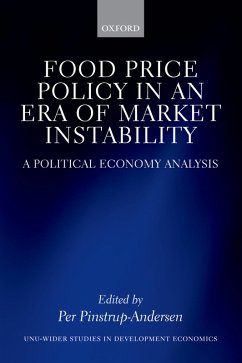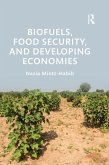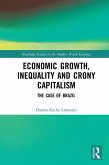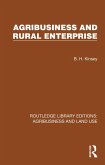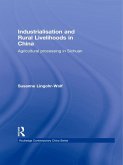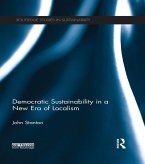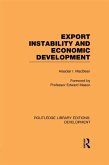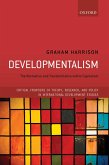This is an open access title available under the terms of a CC BY-NC-SA 3.0 IGO licence. It is free to read at Oxford Scholarship Online and offered as a free PDF download from OUP and selected open access locations. Food price volatility is one of the major challenges facing current and future global food systems. Since 2006, global food prices have fluctuated greatly around an increasing trend and price spikes were observed for key food commodities such as rice, wheat, and maize. The full or partial transmission of these global food price changes to individual developing countries, together with domestic food price changes, caused by domestic factors such as extreme weather events and market disruptions, caused governments to respond in a variety of ways. While there is ample description of the nature, content, and causes of food price fluctuations during the last 5 to 7 years, very little is known about the processes that led to policy responses or the relative power and behaviour of the participating stakeholder groups. Understanding how and why governments responded as they did is important to enhance the existing knowledge of the political economy of food price policy and to assist governments in their policy-making as they confront future food price fluctuations. This book presents results from political economy studies of food price policy in 14 developing countries as well as the United States and the European Union.
Dieser Download kann aus rechtlichen Gründen nur mit Rechnungsadresse in A, B, BG, CY, CZ, D, DK, EW, E, FIN, F, GR, HR, H, IRL, I, LT, L, LR, M, NL, PL, P, R, S, SLO, SK ausgeliefert werden.

